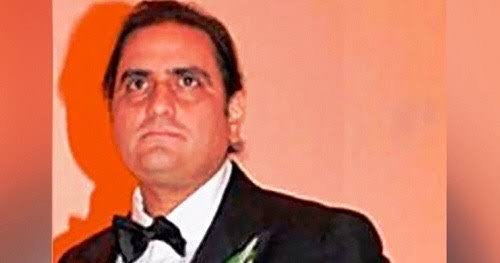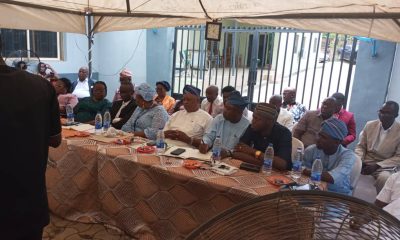News
Alex Saab: Why Cape Verde Is Bound By ECOWAS Court Ruling

Ten days after the Economic Community of West African States (ECOWAS) court ruled that the continued detention and push for extradition of Venezuelan diplomat, Alex Saab by the Cape Verde government is illegal, the authorities have refused to comply with the court’s order.
The judgement of the ECOWAS court is based on the absence of a Red Notice when Saab was arrested in June last year.
Barely a day after the ruling, on Tuesday March 16, a Cape Verdean Supreme court ruled that Saab be extradited to the United States.
In its ruling, the Cape Verdean Supreme Court explained that it refused to comply with earlier decisions of the ECOWAS court because “it considers
itself as not legally bound to the said protocol.”
Why Cape Verde Is Bound By The Ruling
The refusal of Cape Verde authorities to abide by the ruling contradicts the action of the then Prime Minister of country, José Maria Pereira Neves, who took part in the deliberations that led to the drafting of the Final Communiqué of the twenty-eighth session of ECOWAS Heads of State and Government held in Accra on 19 January 2005.
The communique included the provisional application of the Protocol which authorized the ECOWAS Court to hear human rights cases
Even though the then Prime Minister did not sign the Protocol as he had to leave for emergency reasons, it became binding on Cape Verde because it was signed by 14 out 15 member states when only 9 out of 15 is required.
Similarly, when Gambia tried to change the human rights mandate of the court in 2009, Cape Verde voted against it.
On the basis of the principle of estoppel in international law, which means you cannot change your mind and position just to suit your immediate needs, it is also impossible for Cape Verde to claim the decision of the ECOWAS court is not binding on it to suit its actions.
‘A Great Threat’
The refusal of Cape Verde authorities to comply with the ruling of the ECOWAS court poses a great threat to the legal environment for the integration of the community as warned by Ghanian President, Nana Addo Dankwa Akufo-Addo in while speaking at a four-day conference organized by the ECOWAS Court of Justice in Accra with the theme: “Economic integration of West Africa: Challenges and prospects” in 2019.
He maintained that the court has the exclusive responsibility for the interpretation and application of the ECOWAS revised treaty among member states.
The Court of Justice was created pursuant to the provisions of articles 6 and 15 of the Revised Treaty of ECOWAS and the adoption of the Protocol on the Community Court of Justice in 1991.
Additionally, the ECOWAS Revised Treaty of 1993 established the Court of Justice as an institution of ECOWAS.
The protocol, which has seen two amendments in 2005 and 2006, have the Supplementary Protocol expanding the court’s jurisdiction to include human rights claims by individuals.
The court has jurisdiction over four general types of disputes — those relating to the interpretation, application or legality of ECOWAS regulations, those that arise between ECOWAS and its employees, those relating to liability for or against ECOWAS and also disputes that involve violations of human rights committed by member states.
-

 News4 days ago
News4 days agoCapacity Building: OHIS Organizes Retreat For New Board Members
-

 News3 days ago
News3 days agoFamily Of Gruesomely Murdered Pastor Cries For Justice
-

 News5 days ago
News5 days agoOsun RAAMP Opens Bid For Road Constructions Statewide
-

 News2 days ago
News2 days agoJust In: Nigerian Governor Dethrones 15 Traditional Rulers, Reinstates 7







